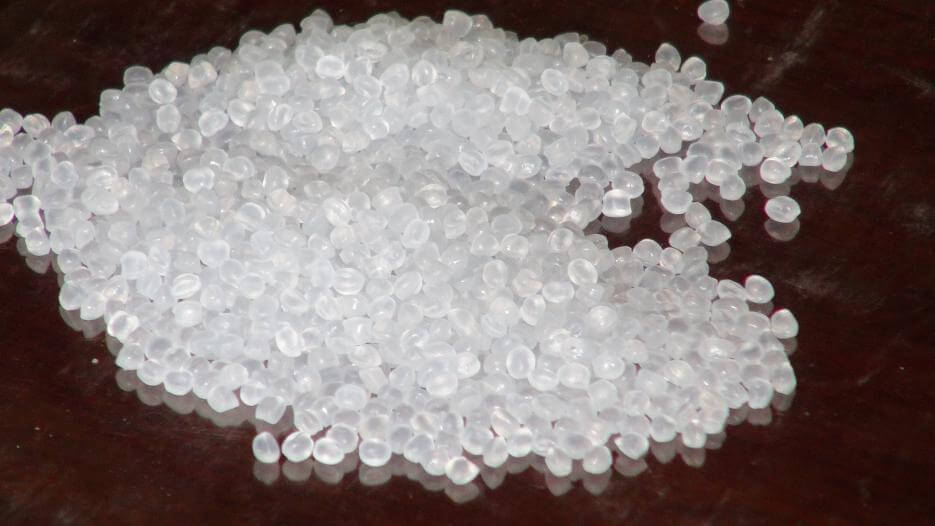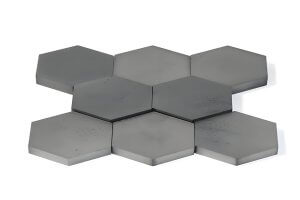Introduction to Delrin
Delrin, a trademark of DuPont, is a crystalline plastic known for its high tensile strength, stiffness, and enhanced dimensional stability. A type of acetal resin or polyoxymethylene (POM), Delrin boasts low friction and excellent wear resistance under wet conditions. Its properties make it ideal for gears, bushings, and small moving parts in mechanical systems where smooth operation is essential without ongoing lubrication. Additionally, it resists moisture absorption, contributing to its performance reliability across varied environmental conditions. The comprehensive utility of Delrin can be evidenced through applications ranging from automotive to consumer electronics, emphasizing its versatility within the realm of engineering plastics.
Chemical Composition of Delrin
The polymer known as Delrin is primarily made up of Polyoxymethylene (POM), a thermoplastic with the chemical formula (-CH2O-)n. This molecular makeup features repeating units of formaldehyde, which are chemically stabilized to resist degradation. POM is characterized by its high tensile strength, stiffness, and resistance to abrasion. It is often used for precision parts due to its low friction and excellent dimensional stability. The stable carbon backbone contributes to Delrin’s inherent resistance to solvents and hydrocarbons, making it highly suitable for automotive and industrial applications that require long-term performance without significant deterioration.
Physical Properties of Delrin
The physical properties of Delrin, a type of Polyoxymethylene (POM), are characterized by high strength and stiffness, which make it an ideal material for mechanical parts subjected to rigorous operating conditions. It boastfully endures continuous stresses without significant deformation, demonstrating remarkable durability. With a melting point of around 175°C, Delrin maintains dimensional stability over a wide range of temperatures, ensuring reliable performance in applications where thermal resistance is crucial. Although inherently possessing a natural white or black coloration, the ease with which Delrin can be dyed allows for customization to different visual specifications—enhancing aesthetic versatility without compromising its mechanical integrity.
Mechanical Characteristics of Delrin
Delrin, a polyoxymethylene (POM) thermoplastic, exhibits excellent mechanical characteristics. Its tensile strength allows it to withstand significant stretching forces without breaking, making it suitable for parts subjected to high mechanical loads. Additionally, Delrin is known for its impressive impact resistance, which means it can absorb shocks and impacts without cracking or deforming, an essential feature for protective gear and automotive bumpers. Durability in Delrin is characterized by its ability to resist wear, fatigue, and abrasions over time; thus, it maintains functionality even under continuous use and environmental stressors. As an example, these properties make Delrin ideal for manufacturing gear wheels, where consistent performance and the ability to endure repetitive rotational force are paramount.
Thermal Properties of Delrin
When evaluating the thermal characteristics of Delrin, a commonly used thermoplastic, its heat deflection temperature and continuous service temperature are significant factors. Delrin exhibits a heat deflection temperature of around 95°C (203°F), which indicates the point at which the material begins to deform under a specified load in the presence of heat. In terms of long-term durability, Delrin can typically withstand a continuous service temperature in the vicinity of 80-100°C (176-212°F). This makes it suitable for applications where prolonged exposure to moderately high temperatures is expected. Furthermore, Delrin maintains good performance even at low temperatures, remaining ductile down to -40°C (-40°F) without becoming brittle, making it versatile across a wide range of operating environments.
Electrical Insulation Capabilities of Delrin
Delrin, a thermoplastic polymer in the acetal resin family, exhibits excellent electrical insulation properties. It has a high dielectric strength, which allows it to prevent the flow of electric current, making it an ideal material for applications requiring insulating components. Its low dielectric constant and dissipation factor mean that Delrin can effectively isolate electrical hardware while minimizing energy loss due to heat generation when used within specified temperature ranges. Additionally, its inherent resistance to moisture absorption contributes to maintaining consistent electrical characteristics over time, enhancing reliability for electrical insulation in various environments.
Machinability and Fabrication of Delrin
Delrin, a homopolymer acetal, stands out in the plastic machining world due to its high degree of machinability and ease of fabrication when compared with other plastics. This material boasts superior dimensional stability, natural lubricity, and resistance to wear, making it an excellent candidate for precision parts that require intricate detail without sacrificing structural integrity. A tangible example of Delrin’s fabricational prowess can be seen in complex gear wheels, which demand exact tooth profiles and smooth operation. The ability to hold tight tolerances and produce reliable, repeatable results during CNC machining processes underscores Delrin’s suitability for such components where precise mechanical function is paramount.
Applications of Delrin
Delrin, due to its high strength and rigidity coupled with its excellent frictional properties, finds extensive applications in various industries. In the automotive sector, it is utilized for making durable gears, safety restraint components, door handle assemblies, and fasteners, as these parts demand both resilience and consistent performance under repeated mechanical stress. The material’s resistance to wear and low friction coefficient make it a choice candidate for bushings and bearings found in industrial machinery, where longevity and smooth operation are paramount. Additionally, precision parts like pump impellers, conveyor system links, and insulating bushings in electronic systems benefit from Delrin’s electrical insulation characteristics and dimensional stability. Its versatility extends to consumer products such as guitar picks, pen mechanisms, and sports equipment, all taking advantage of Delrin’s impressive durability and fine-tunable properties.
Advantages and Limitations of Delrin Material Properties
Delrin, a type of acetal resin, offers several advantages due to its mechanical properties. Its high strength, stiffness, and dimensional stability make it ideal for precision parts in high-performance engineering applications. It also boasts low friction and wear resistance, enhancing durability. From an environmental standpoint, Delrin is recyclable, which allows for some degree of sustainability. However, limitations exist; Delrin can experience degradation under prolonged UV exposure and may require additives like UV stabilizers for outdoor use. Processing Delrin must be managed carefully to avoid formaldehyde release during manufacturing. While being recyclable, the practicality of recycling this material often hinges on the availability of suitable facilities and programs.
Material Properties and Utilization of Delrin
Delrin, a brand name for acetal homopolymer resin, is commonly utilized in precision parts that require high stiffness, low friction, and excellent dimensional stability. Examples include gears, bushings, and automotive components. Delrin’s suitability for outdoor use is moderate; it performs well but can degrade under prolonged UV exposure, so stabilizers or protective coatings are recommended. It is recyclable, although the process requires separation from other plastics and may not be available through all recycling programs. In terms of strength, Delrin does not typically match metals; however, its resistance to wear and impact makes it a cost-effective alternative for non-load-bearing applications. When machining Delrin, considerations should include appropriate tooling speed to prevent melting and ensuring sufficient material support to preserve dimensional accuracy.
Other Articles You Might Enjoy
- What material is delrin
Introduction to Delrin Delrin, also known as Polyoxymethylene (POM), is an engineering thermoplastic commonly used in precision parts that require high stiffness, low friction, and excellent dimensional stability. Recognized for…
- Know Your Materials: Delrin
Introduction to Delrin Delrin, Polyoxymethylene (POM), known for its high tensile strength and durability, stands out in the realm of thermoplastics. Its molecular structure showcases a series of -CH2O- units,…
- Material Properties and Their Influence on CNC Machining Vibrations and Finishes
Introduction to CNC Machining CNC machining stands as a cornerstone in modern manufacturing, offering precision and efficiency in producing parts. At its core, CNC (Computer Numerical Control) machining involves the…






